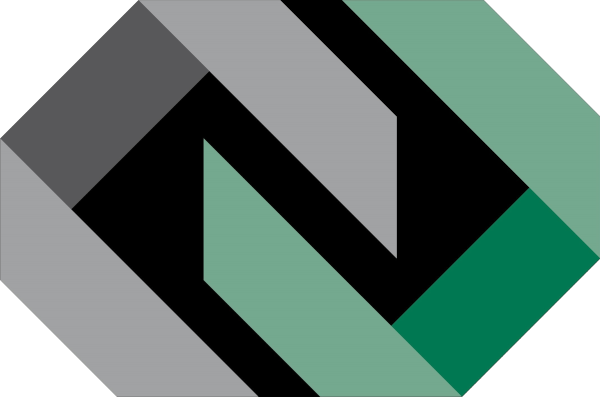How Bomler Helps Brands Comply With the UN’s 17 Sustainable Development Goals
“The world’s best plan to end poverty and reduce inequalities.”
That’s the essence of the 2030 Agenda for Sustainable Development, adopted by all United Nations (UN) member states in 2015 with the goal of ending poverty, protecting the planet, and ensuring that all people enjoy peace and prosperity.
The 2030 Agenda is based on 17 Sustainable Development Goals (SDGs). They’re a call to action by all countries - developed as well as developing - to recognise that ending poverty and other deprivations can only be secured by a collective strategy to
improve health and education,
reduce inequality,
spur economic growth,
tackle climate change, and
work to preserve our oceans and forests.
For the most part, it’s up to the UN member states how to implement this agenda in their own nations. In Germany, for example, the newly adopted Supply Chain Act (more on that in a bit) is based on the 2030 Agenda and will affect how brands must comply with ethical and sustainable practices.
So the 17 SDGs don’t just impact governments and legislators, but brands and suppliers as well. We’ll circle back to how exactly brands are affected in just a bit. To gain an understanding of the magnitude and significance of the UN’s journey to the 17 Sustainable Development Goals, we’ll first have a look at the many steps it took to establish this collaborative agenda.
History of the 2030 Agenda for Sustainable Development
The 2030 Agenda for Sustainable Development may have been approved in 2015, but the journey there has been a rather long one. It was built over decades of agreements and plans across a myriad of summits and conferences across the globe:
Agenda 21 at the Earth Summit in Rio de Janeiro, June 1992
8 Millennium Development Goals at the Millennium Summit in New York, September 2000
Johannesburg Declaration on Sustainable Development and the Plan of Implementation at the World Summit on Sustainable Development, South Africa 2002
UN High-Level Political Forum on Sustainable Development (based on “The Future We Want” document) at the UN Conference on Sustainable Development in Rio de Janeiro, June 2012
2015 turned into a landmark year for international policy shaping. In January, the General Assembly began negotiations on the post-2015 development agenda, culminating in the subsequent adoption of the 2030 Agenda for Sustainable Development in September.
Today, the annual High-Level Political Forum on Sustainable Development serves as the central platform for progress monitoring and reviewing of the SDGs, while the Division for Sustainable Development Goals (DSDG) in the UN Department of Economic and Social Affairs (UNDESA) provides essential support for the 17 SDGs and related issues.
You’ll find more details on these events and organisations as well as their connection to the 2030 Agenda for Sustainable Development here.
The 17 Sustainable Development Goals (SDGs)
Before we continue, here’s a quick overview of the 17 SDGs we’re referencing in this article:
No Poverty
Zero Hunger
Good Health and Well-Being
Quality Education
Gender Equality
Clean Water and Sanitation
Affordable and Clean Energy
Decent Work and Economic Growth
Industry, Innovation, and Infrastructure
Reduce Inequalities
Sustainable Cities and Communities
Responsible and Sustainable Consumption and Production
Climate Action
Life Below Water
Life on Land
Peace, Justice, and Strong Institutions
Partnerships for the Goals
Find more details on the 17 SDGs here.
Based on SDGs: Germany’s 2021 Supply Chain Act
One great example of how UN member states are incorporating and working on the 17 Sustainable Development Goals is Germany’s new Supply Chain Act (or Due Diligence Act), which we introduced in detail here.
With this act, the legislator is creating clear legal regulations for international supply chains for German brands, applicable from 2023 onward. The new law specifies the form in which companies must fulfill their human rights due diligence obligations - and are thus directly connected to and support several Sustainable Development Goals, for example:
no poverty (1),
zero hunger (2),
good health and well-being (3),
decent work and economic growth (8), and
reduction of inequalities (10).
As an industry platform that connects ethical suppliers, sustainable brands, and mindful consumers with each other, Bomler helps users support and reach these and many more Sustainable Development Goals.
How Bomler Helps Brands Comply With the SDGs
More and more, ethical and sustainable sourcing and practices aren’t just “dictated” from above by governments and their agendas - consumers are also amping up the pressure from their end.
Caught between buyers’ demands and legislators’ laws, it’s no longer enough for brands to promise compliance with ethical and sustainable standards and goals along their supply chain. They must be able to prove it. Transparency is the name of the game - and it’s where the Bomler platform excels.
Bomler closes the gap between consumer demands and your brand’s compliance transparency. With Bomler, you’re able to
obtain sourcing and production data from your suppliers,
keep track of it within your own organisation, and
make the supply chain information of any product fully transparent to your customers via QR-code - when and where they ask for it.
In essence: By using the Bomler platform, your brand can prove to customers that you’re invested in and support the Sustainable Development Goals for every single one of your products along its entire supply chain journey.

